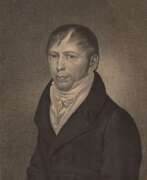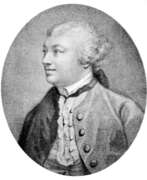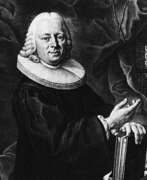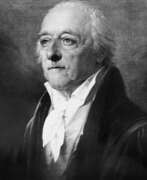Pharmacists 18th century


Friedrich Gottlob Hayne was a German botanist, taxonomist, pharmacist and professor.
After many years of teaching, he was appointed Professor of Pharmaceutical Botany in 1828. In addition to his lecturing duties he led many botanical excursions. He was known for using precise terminology in his plant descriptions.


John Hill was a British botanist, pharmacologist and physician, geologist, writer and journalist.
Hill edited the monthly British Magazine for several years, and also wrote a daily society gossip column in The London Advertiser and Literary Gazette. His satirical, often on the edge of propriety articles were often the cause of scandals. Hill also wrote novels, plays, and scientific works on geology, medicine, philosophy, and botany.
In 1759, the first of the 26 volumes of his Plant System was published. This voluminous work contained descriptions of 26,000 different plants and 1,600 illustrations. For this long work, Hill received the Order of Vasa from the Swedish king and began calling himself Sir.


Jacob Christian Schäffer was a German inventor, naturalist, entomologist and mycologist.
Schäffer was a very versatile scientist. He is best known for his work in mycology (the study of fungi), but his most important publication was undoubtedly a book on daphnia or water fleas.
Schäffer also published reference books on pharmaceuticals and medicinal herbs. He conducted experiments on electricity, colors, and optics, and invented the manufacture of prisms and lenses. He invented the washing machine, designs for which he published in 1767, and studied ways to improve paper production.
Schäffer was a professor at the Universities of Wittenberg and Tübingen, a member of the Royal Society of London, and a correspondent of the French Academy of Sciences.


Nikolaus von Jacquin, full name Nikolaus Joseph Freiherr von Jacquin, also Baron Nikolaus von Jacquin, was an Austrian and Dutch scientist, professor of chemistry and botany, and director of the Vienna Botanical Garden.
Jacquin is considered a pioneer of scientific botany in Austria. He wrote fundamental works in botany, was the first to describe many plants, fungi, and animals, introduced experimental methods in chemistry, and successfully campaigned for the introduction of Linnaeus' system of plants in Austria. On behalf of Emperor Franz I, von Jacquin was in charge of the imperial gardens (including Schoenbrunn) and also led a scientific expedition to Central America from 1754 to 1759, from which he returned with an extensive collection of plants.
In 1768, Nikolaus von Jacquin was appointed professor of botany and chemistry at the Faculty of Medicine of the University of Vienna and director of the newly founded botanical garden, which he reorganized according to scientific principles. Nikolaus von Jacquin was a member of the Royal Society of London, a foreign honorary member of the St. Petersburg Academy of Sciences, and a correspondent of the Paris Academy of Sciences.